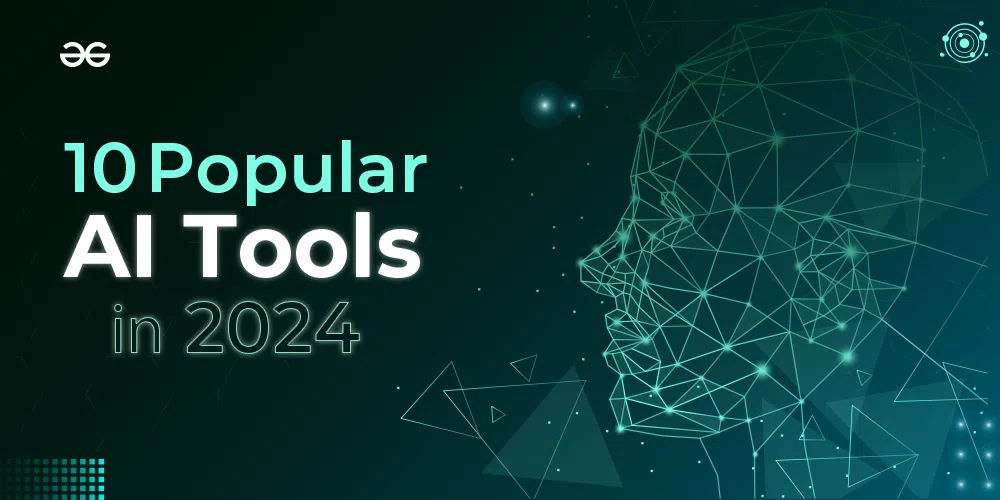Artificial Intelligence (AI) has experienced unprecedented growth in 2024, revolutionizing various sectors by enhancing efficiency, decision-making, and user experiences. This article provides an in-depth exploration of the most influential AI tools that have emerged this year, their applications, and the impact they have across different industries.
1. Natural Language Processing (NLP) Tools

1.1. OpenAI’s GPT-4
OpenAI’s GPT-4 has set new standards in natural language understanding and generation. With its advanced architecture, GPT-4 excels in tasks such as content creation, translation, and summarization, making it indispensable for businesses seeking to automate and enhance their communication processes.
1.2. Google’s BERT Enhanced
Google’s BERT Enhanced model has significantly improved search engine capabilities by better understanding the context of user queries. This advancement has led to more accurate search results, enhancing user satisfaction and engagement.
2. Computer Vision Tools
2.1. Microsoft’s Azure Computer Vision
Microsoft’s Azure Computer Vision offers robust image and video analysis capabilities. It enables applications such as object detection, facial recognition, and optical character recognition (OCR), facilitating automation in industries like retail, healthcare, and security.
2.2. Amazon Rekognition
Amazon Rekognition provides powerful image and video analysis services, including facial analysis and scene detection. Its integration into various applications has streamlined processes in identity verification and content moderation.
3. Generative AI Tools
3.1. Midjourney
Midjourney has gained prominence for its ability to generate realistic images from textual descriptions. This tool has been widely adopted in creative industries, allowing artists and designers to visualize concepts rapidly.
3.2. DALL-E
DALL-E, developed by OpenAI, extends the capabilities of generative AI by creating intricate images from textual inputs. Its applications range from advertising to product design, offering innovative solutions for visual content creation.
4. AI in Healthcare
4.1. IBM Watson Health
IBM Watson Health utilizes AI to analyze vast amounts of medical data, assisting healthcare professionals in diagnosis and treatment planning. Its predictive analytics capabilities have improved patient outcomes and operational efficiency in medical facilities.
4.2. Google’s DeepMind Health
DeepMind Health focuses on leveraging AI for medical research and patient care. Its algorithms have been instrumental in early disease detection and personalized treatment strategies, contributing to advancements in medical science.
5. AI in Finance
5.1. BlackRock’s Aladdin
BlackRock’s Aladdin platform employs AI to manage investment portfolios, assess risks, and execute trades. Its analytical prowess has made it a cornerstone for informed decision-making in financial institutions.
5.2. JPMorgan’s COiN
JPMorgan’s Contract Intelligence (COiN) uses AI to interpret legal documents and extract vital data. This automation has significantly reduced the time and errors associated with manual document processing in the financial sector.
6. AI in Customer Service
6.1. ChatGPT
ChatGPT has revolutionized customer service by providing human-like interactions in chatbots. Its ability to understand and respond to customer queries has enhanced business user satisfaction and operational efficiency.
6.2. Zen desk’s Answer Bot
Zendesk’s Answer Bot utilizes AI to provide instant responses to customer inquiries, improving response times and reducing the workload on human agents. Its integration into customer service platforms has streamlined support processes.
7. AI in Autonomous Vehicles
7.1. Tesla’s Full Self-Driving (FSD) Beta
Tesla’s FSD Beta represents a significant leap in autonomous driving technology. Utilizing AI, it enables vehicles to navigate complex environments with minimal human intervention, paving the way for the future of transportation.
7.2. Waymo’s Driver AI
Waymo’s Driver AI system employs advanced machine learning algorithms to interpret sensor data and make real-time driving decisions. Its deployment in autonomous ride-hailing services has demonstrated AI’s potential to revolutionize urban mobility.
Know more: https://www.marktechpost.com/2024/12/20/top-25-ai-tools-to-increase-productivity-in-2025/
In conclusion, the AI tools of 2024 have significantly advanced capabilities across various domains, driving innovation and efficiency. As these technologies continue to evolve, their integration into daily life is set to deepen, underscoring the importance of staying informed about the latest developments in AI.






















